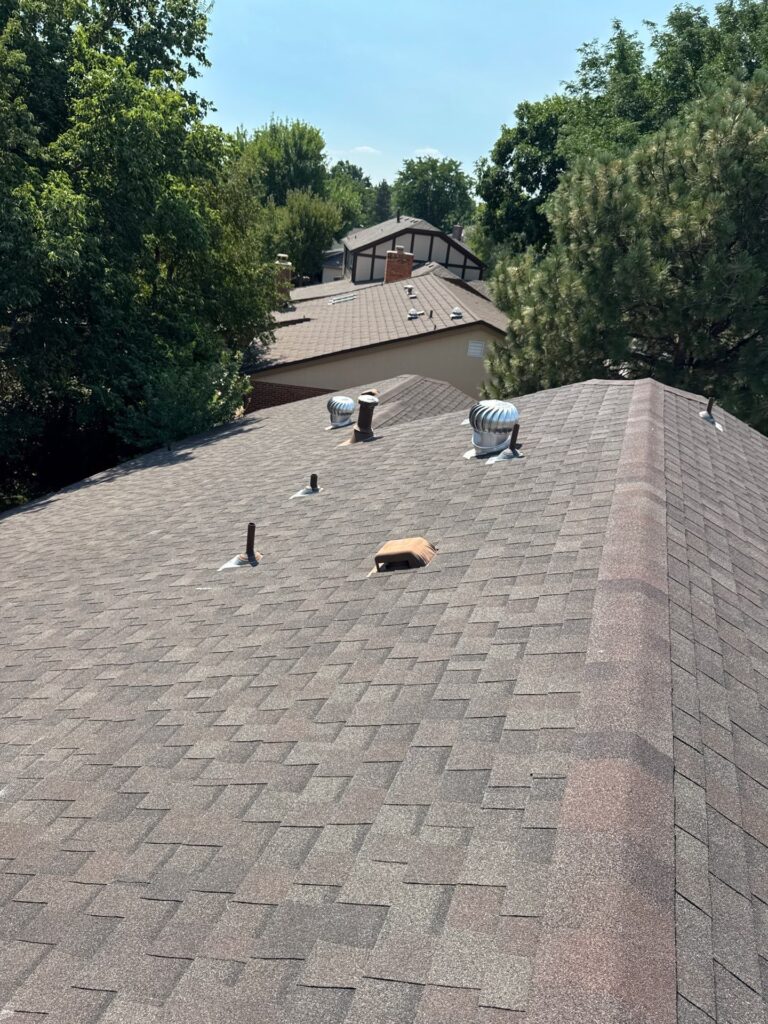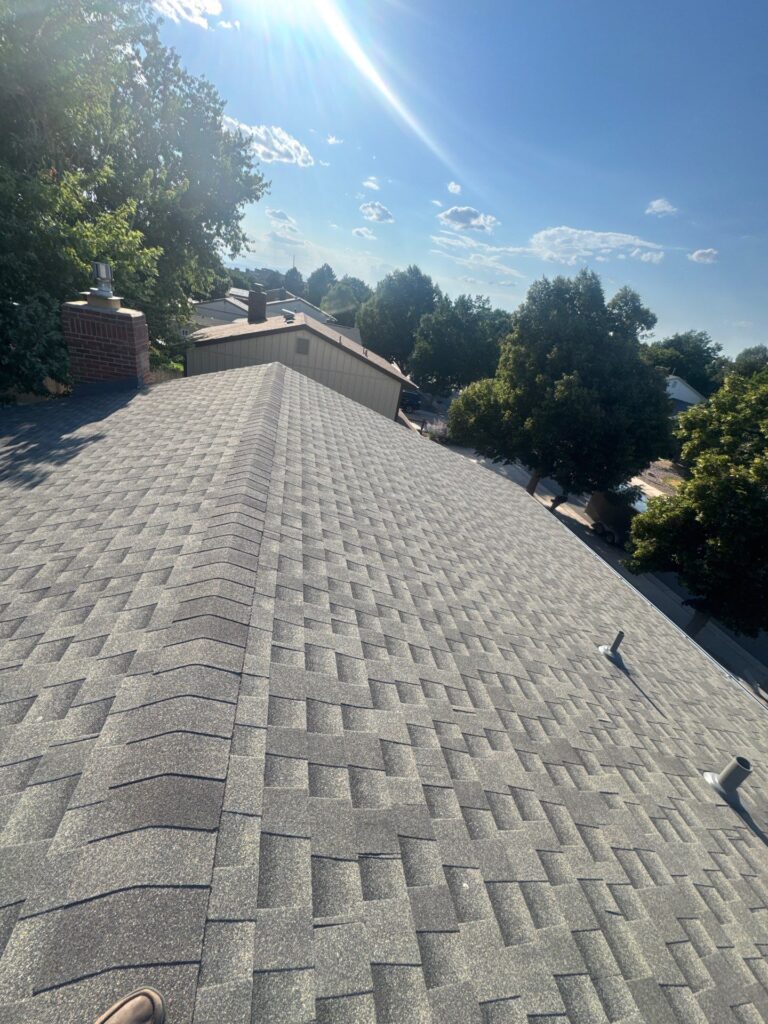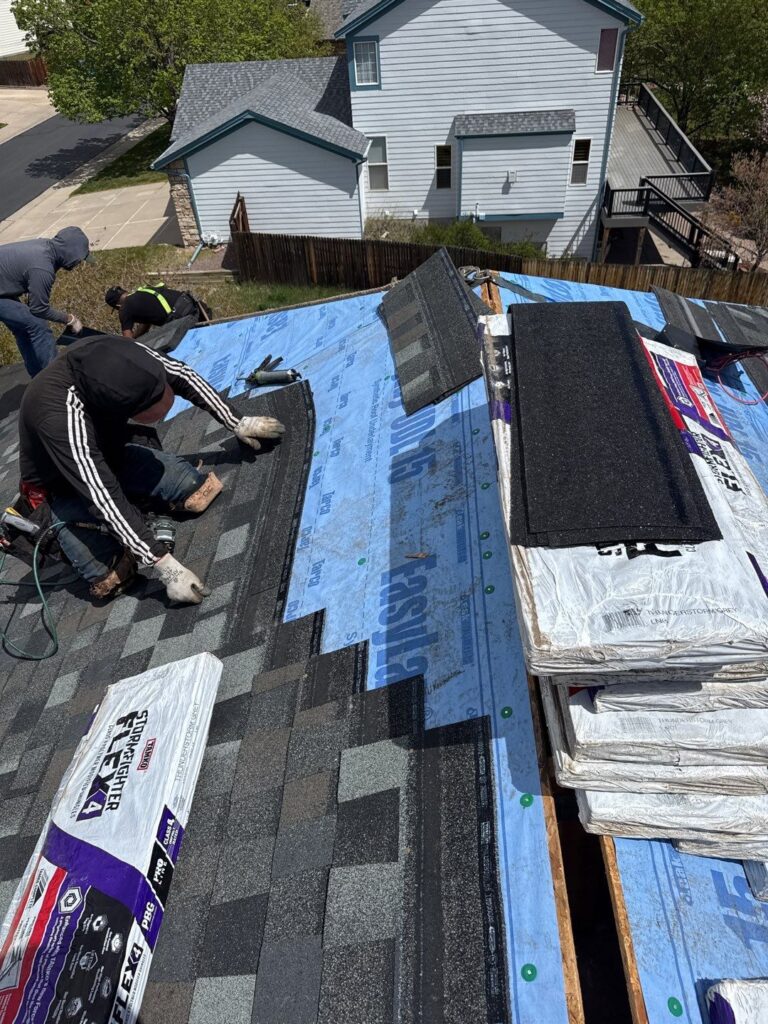The 3 Most Common Roof Types in Denver, CO Homes and Businesses
Denver’s unique climate brings intense sun, sudden hailstorms, and heavy winds, which means roofing materials need to be chosen with durability and functionality in mind. Understanding the most common roof types in Denver helps homeowners and property managers select the right balance of cost, performance, and curb appeal.
Asphalt Shingle Roofs
Asphalt shingles are the most widely used roofing material in Denver because of their affordability and versatility. They come in multiple styles and colors, fitting both traditional homes and modern buildings. Asphalt shingles are easy to install and repair, making them an attractive option for many homeowners. However, their average lifespan of 15–30 years means they may require replacement sooner than more durable materials.
Impact-Resistant Shingles
Designed with reinforced asphalt and advanced materials, impact-resistant shingles provide extra protection against Denver’s notorious hailstorms. They significantly reduce the likelihood of cracks and punctures, extending the roof’s lifespan and lowering repair costs.
Dimensional Asphalt Shingles
Also known as architectural shingles, these have a thicker, layered look that mimics higher-end materials like wood or slate. Dimensional shingles offer greater durability and longer warranties compared to standard three-tab shingles, making them one of the best roofing options for homeowners seeking both strength and aesthetics.
Slate Roofs
Slate roofing is a premium option known for its unmatched longevity and natural elegance. When properly installed, slate roofs can last well over a century, offering superior resistance to Denver’s harsh weather conditions. The natural stone provides timeless beauty that enhances property value. On the downside, slate is extremely heavy and requires professional installation as well as structural reinforcement. Despite the higher cost and weight considerations, slate remains a top choice for homeowners who want lasting quality and sophistication.
Flat Roofs
Flat roofing systems are especially common for Denver’s commercial buildings but are also found on modern-style homes. They maximize usable space, allowing for rooftop patios, gardens, or solar panels. Popular materials for flat roofs include modified bitumen, TPO, and EPDM rubber, all designed to withstand Denver’s variable climate. Proper installation and drainage are critical to prevent water pooling and leaks, but with routine maintenance, flat roofs can be highly practical and efficient.
Choosing the Right Roof for Denver Properties
When deciding among asphalt shingles, slate, or flat roofing systems, it’s important to weigh budget, durability, and design preferences. Asphalt shingles remain the most affordable and flexible choice. Slate delivers exceptional beauty and longevity but requires higher upfront investment. Flat roofs provide versatility for commercial properties and modern residential designs. If you are searching for experienced roofing companies in Denver, Tried and True Roofing in Denver, Colorado, offers expert solutions tailored to withstand local weather while matching each property’s style.
Conclusion
Denver’s climate demands strong roofing systems that can handle hail, wind, and intense sun. Asphalt shingles remain popular for affordability, with impact-resistant and dimensional options offering added strength. Slate roofs deliver timeless elegance and durability, while flat roofs provide modern practicality, especially for commercial properties. By understanding the three most common roofing types in Denver, homeowners can make informed decisions that balance cost, performance, and long-term value.
The 3 Most Common Roof Types in Denver, CO Homes and Businesses Read More »





